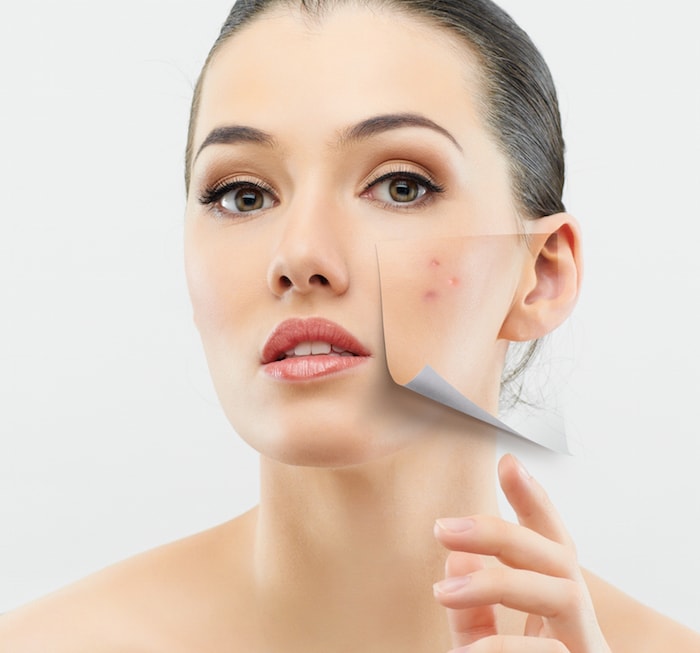Once those red or white menaces make an appearance on your face, you normally have three to five days of dealing with the unsightly appearance of pimples. While some people have the ability to leave these little monsters alone, others tend to pick, scratch and pop them until there’s no life left in them. Doctors and dermatologists suggest that leaving pimples alone can help minimize the aftermath since further trauma to the skin can cause acne scarring. However, even a pimple that is untouched can turn into acne scarring that seems impossible to conceal. Nevertheless, scarring doesn’t have to be permanent. Learn how to finally get rid of acne scars.

At-Home Treatments for Acne Issues
Skin care experts agree that there are numerous ways to prevent and treat acne scarring. Resurfacing products can help with existing acne and acne scars. Glycolic acid and Lactic acid help to minimize the depth and severity of scars while working to keep the pores clear. A cream with the active ingredient of salicylic acid can also work well. Retinol or vitamin A is known for a variety of skin-boosting benefits but few know about its resurfacing attributes which can help with acne outbreaks and scar healing. In mild doses, vitamin A can dry up the production of sebum. When there is less sebum in the pores, the odds of the pores becoming clogged is reduced which decreases the chance of an outbreak. In a case where a person already has scarring caused by acne, vitamin A promotes shedding of the dead skin cells. This stimulates cell turnover and collagen production to help minimize the depth of scarring and combat existing blemishes. While these treatments can work very well, it can take time to see great results. Therefore, some people opt for one of several clinical treatments that can quickly and effectively remove or reduce acne scarring while clearing the pores for a brighter complexion.
Non-Invasive Treatments for Acne Scarring
Microneedling, dermal fillers and microdermabrasion are some of the less invasive clinical treatments available for acne scarring. Each of these treatments can minimize the appearance of scars by allowing the body to naturally heal itself while encouraging or increasing collagen production. Microneedling uses tiny acupuncture-like needles to encourage the skin’s natural repair system. This treatment does not remove any layers of skin so it can be performed on any skin type and has minimal recovery time. Dermal fillers can be used to fill-in depressed skin that is created from volume loss caused by the inflammatory process during an acne infection. The filler is injected into the depressed scar to plump up the skin. Most dermal fillers are made of hyaluronic acid which naturally occurs in the body. Therefore, they are easily accepted by the body and have little to no side effects or recovery time. However, dermal fillers are temporary and will be naturally absorbed by the body over time. Microdermabrasion is a treatment which uses a diamond tip device or a spray of fine crystals to buff the superficial layer of dead skin cells. The body interprets the exfoliation as an injury and replaces the dead cells with healthy new cells. Microdermabrasion can also be used on all skin tones and does not require a lengthy downtime. Since these non-invasive treatments tend to be gentler, it can take several treatment sessions to gain adequate results.
Customized Treatments for Acne Scarring
Alternative treatments may include laser resurfacing or chemical peels. Both treatments are considered minimally invasive. Laser resurfacing and chemical peels can be customized from light treatments with a minor recovery period to an aggressive treatment requiring up to 14 days of recovery. These treatments work by removing the top layers of skin with either heat or chemicals creating a controlled wound. The body will respond to the trauma and create a new layer of skin which will be smoother and firmer looking. Although these cosmetic procedures have the potential for a higher rate of complications, they can quickly and effectively treat acne scarring with as little as one treatment. Anyone considering these treatments should consult with a board-certified doctor to see if laser resurfacing or a chemical peel is right for them since these treatments are not recommended for patients with darker skin tones or certain medical conditions.
SP
